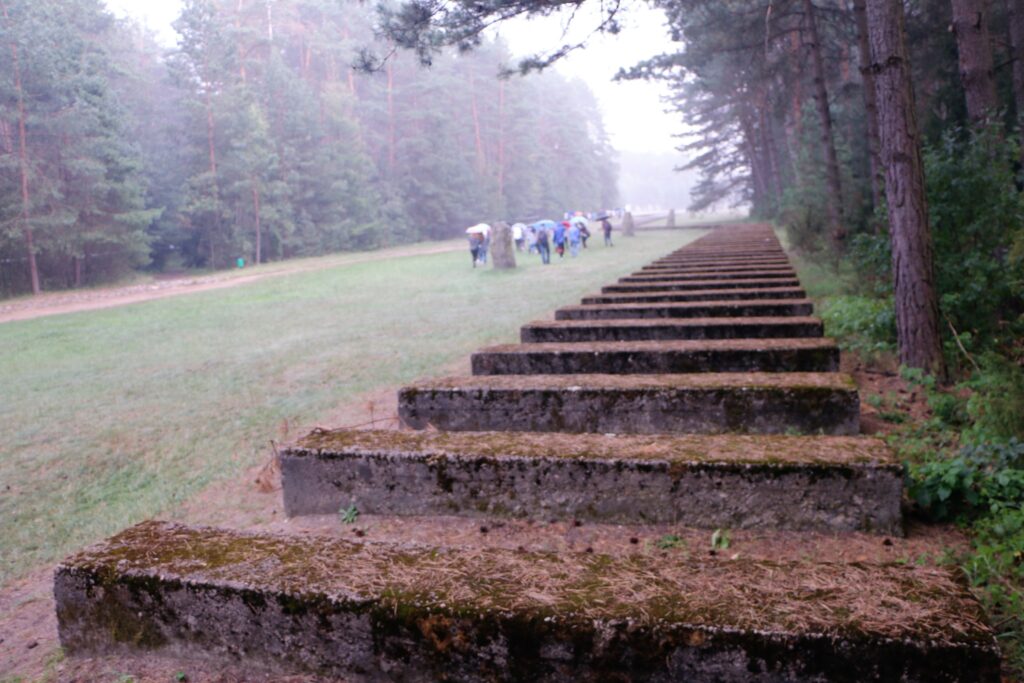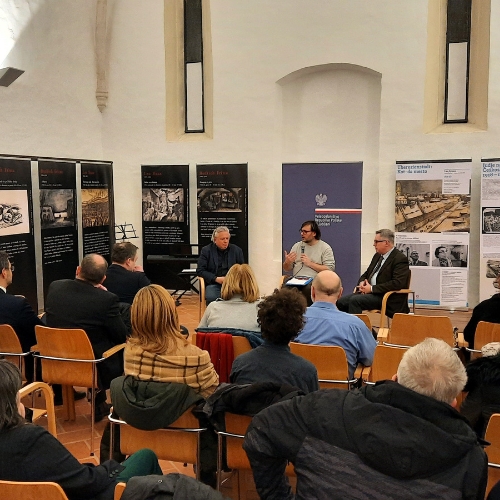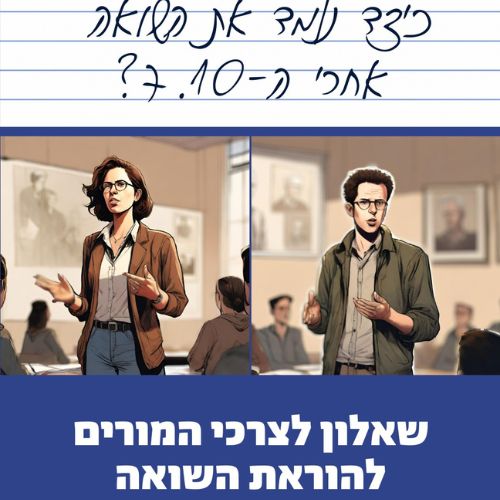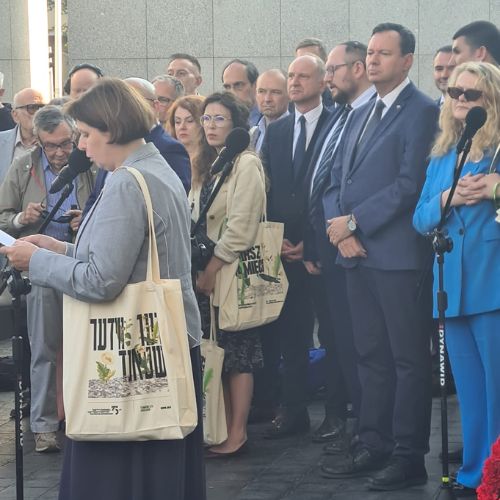Journey to Poland
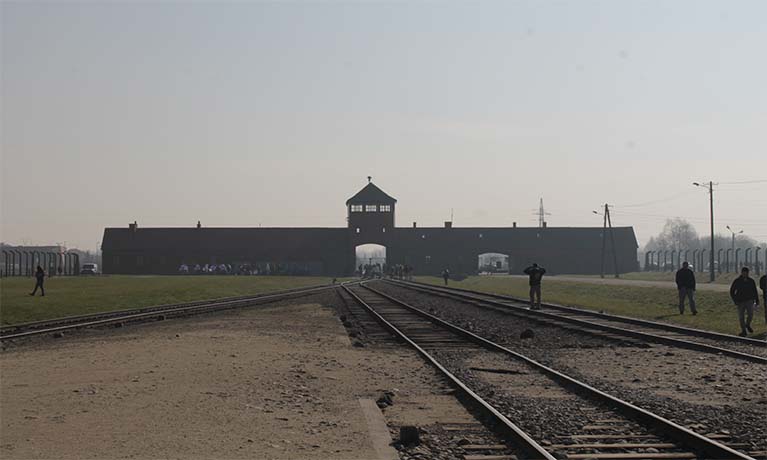
The journey to Poland “In Search of Human Beings” focuses on the human spirit, people’s equality and the belief that they could make moral choices. During the preparations for the journey, we will examine social phenomena and historical events through the study of the human spirit, the choices made, the culture, the society and nationality. We will also consider our Jewish, Zionist and humanist identity. The educational journey to Poland “In Search of Human Beings” is a collaboration between Moreshet, The Holocaust Memorial Institute, and Hashomer Hatzair movement.
Our Educational Philosophy
Our educational and ethical philosophy is based on a Zionist humanitarian perspective which poses historical and contemporary questions relating to human beings and society.
We act in the spirit of dialogic pedagogy and are committed to the educational philosophy which encourages asking questions and developing ethical debate relating to our life today.
Our team of leaders give personal attention to students and create a meaningful group process right from the first preparatory meeting.
“In Search of Human Beings” believes in creating full cooperation, throughout the process, with schools’ educational staff.
Our educational programme can be adapted to the needs of any educational framework in which it operates.
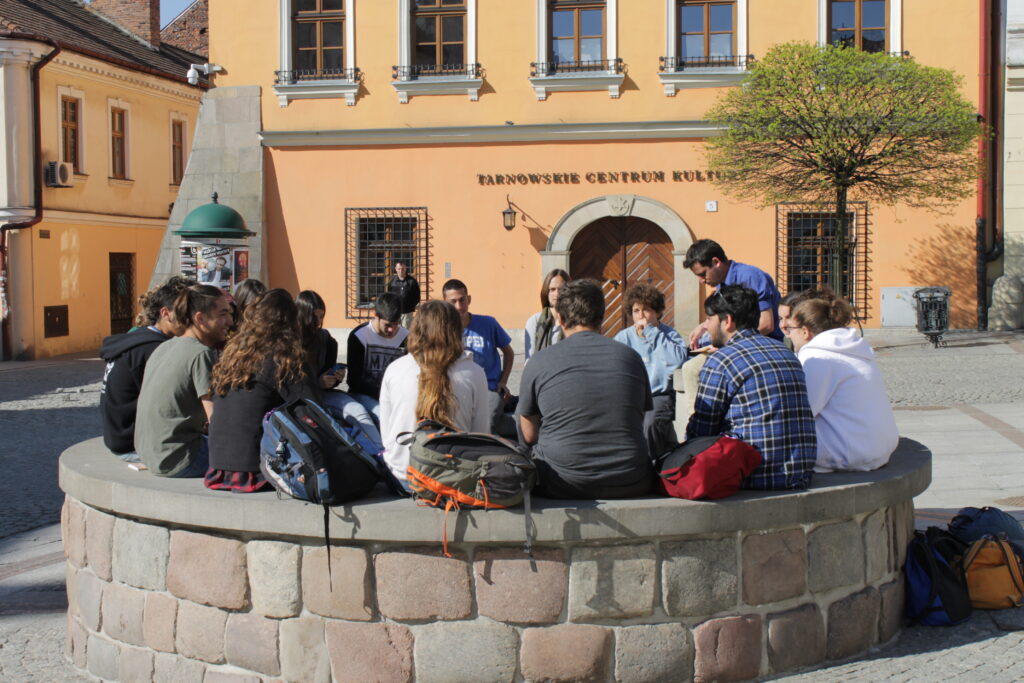
The educational process
Our educational process emphasises each student’s personal experience within the group. Thus, most of our activities take place in workshops. We work in groups of no more than 30 students to allow the best experience for each and every one.
The Education Process we offer Includes
– Preparatory sessions of 3/5 meetings (including a visit to the Moreshet Institute, and a testimonial meeting with Holocaust survivors)
– A 7-day journey to Poland
-A review meeting
The process allows students to experience material in depth, develop thinking processes and relate to the relevant questions for them as Israeli society youth.
The four main areas covered are
The Jewish world
The study of the Jewish people in the diaspora before World War II, posing questions about the link between students and their Jewish and Zionist identity. Much attention will be given to the hundreds of diverse and ideological years in Poland before the Holocaust.
The Final Solution
Review Nazi ideology and study German society during the early 30s. We will examine the daily life in Nazi Germany and will discuss the image of a murderer – who were the Nazi murderers and were they ordinary people?
Resistance and Uprising
Looking at the establishment of Jewish youth movements in Poland, the uniqueness of the pioneering youth movements and their educational work in the various ghettos during the war. Emphasis would be given to the ghetto uprising led by youth movements who wished to uphold their values even in the difficult reality of war and how they manage to persuade the Jewish population to resist the Nazis. We will look at other forms of Jewish resistance in the ghettos, in the forests and in the concentration camps.
Jewish – Poles Relationship
Examining Jewish and Poles relationships throughout the years – from the time the Jews have arrived in Poland, their relationship during the war and afterwards. We will examine this complex subject through various choices the Poles have had to make during the Holocaust – from cooperating with the Nazis, to remaining by-standers and through to the few who have chosen to help and save Jews.
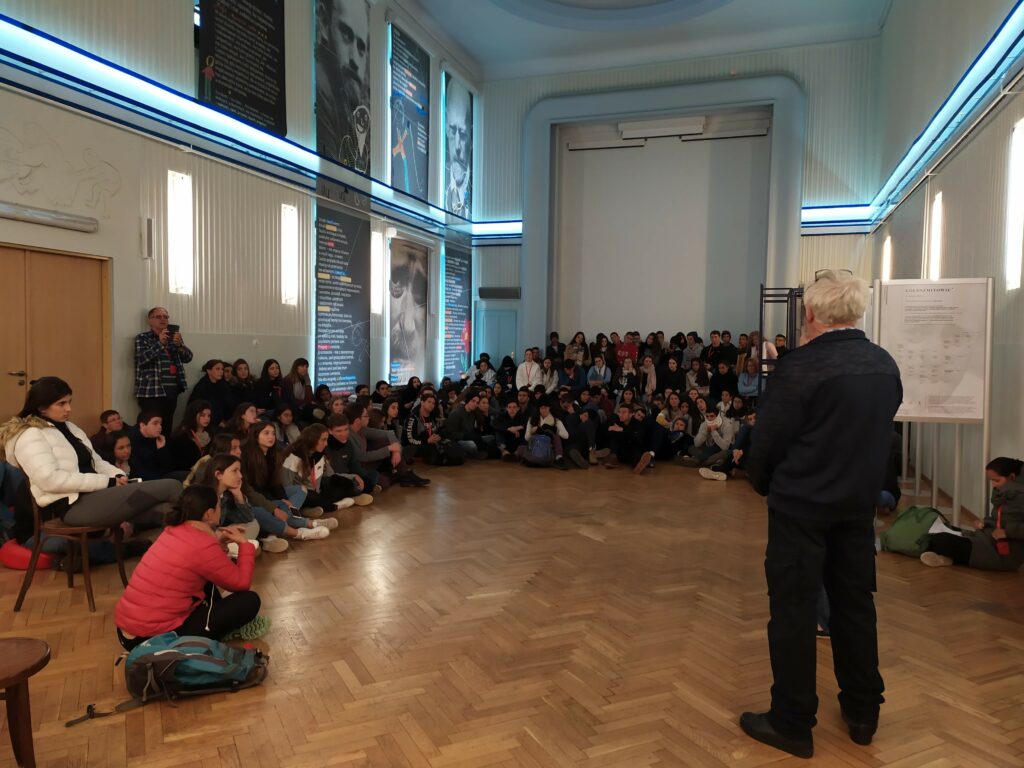
The Process Uniqueness
The Journey
The journey will take us to historical sites associated with the Jews of Poland and the Polish history. We will visit the ghettoes’ remains and the concentration and death camps. We will hear stories of places and people and deal with questions relating to people and society; moral dilemmas, questions of choice and ethics which have been dealt with at the start of the process.
Spheres of Content
Through the journey we will expand on the spheres of content dealt with at the preparatory stage:
The Jewish world: visiting remains of pre-war Jewish cemeteries and restored synagogues.
The final solution: visiting extermination sites where Jews were murdered in shooting pits, ghettoes and concentration and death camps.
Resistance and uprising: visiting sites where stories of resistance by the Jews in the ghettoes and camps can be told.
Jews and Poles relationship: visiting cites linked to Jews and Poles during the Holocaust, such as sites telling the stories of the Polish righteous gentiles of the world.
The Uniqueness of our Journey
Students’ participation
Active participation in creating the content of the journey by preparing texts and conducting workshops in some of the journey’s cites.
Group discussions, sharing the journey’s experience.
Working with the teaching staff throughout the journey
– Teachers and students work together to create evening discussions during the journey.
– Guidance of educational staff during the preparation for the journey alongside the education process.
– Cooperation between the bus team (guide and teachers) throughout the journey – planning discussions during the day and for the evening, processing the journey’s content and assessing students individually.
Visiting Moreshet
As part of the preparation process for the journey, we offer a day in Moreshet, The Holocaust Memorial Institute, in Givat Havivva. The visit includes exhibitions and various activities offered by the institute: the Mordechai Anielewicz permanent exhibition, the Women in the Holocaust exhibition, the Besa exhibition – The world righteous gentiles of Albania – and the activities arena “Like Anyone Else?” The Moreshet visit is recognised by the Polish administration as a visit to a Holocaust teaching institute.
The teachers’ preparatory process
We give great importance to cooperation and team work between the school educational team and the leaders’ team. Therefore, we follow a certain practise for the accompanying educators alongside the students’ educational process.
This practice includes a few sessions focusing on the following topics:
– Coordinating expectation towards working together
– Overview of the evening discussions during the journey
– A discussion about the journey’s texts
– Joined planning for the journey (learning the route, job allocation, procedures etc)
Review meeting
We believe that the journey does not end when we land back in Israel. The students continue the journey when they are back, looking at the many questions and thoughts that have arisen during the journey. This is collated for the review meeting in order to help students to digest the journey’s experience and insights and look at how they can follow it up – what can they do, what would they like to do with what they have learned and understood from the journey to Poland?
